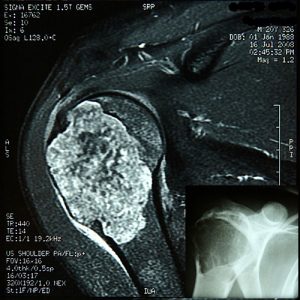
In a recent social media post, a fellow journalist asked how others get up to speed on reporting about topics new to them, or even covering a new subtopic within an area they already cover. Here’s some of what was shared in that online discussion, and I encourage others to share their tips in the comments as well.
If it’s a quick piece with a tight turnaround and I find I’m out of my depth, I go back to the editor and say so. I’ve turned down assignments even after taking them if I realize I just don’t have the necessary foundational knowledge. With rare exception, editors appreciate my honesty and are even more inclined to assign me more work because they trust that I know my limits and will only take assignments about research I’m confident I can responsibly cover.
Outside of those circumstances, if it’s an area I’m interested in writing more about, I purposely take an assignment that allows me the time to dive deeper into it. I use ignorance as an asset, and I overreport the first article, assuming I’ll be writing more and therefore making a knowledge investment. (If I don’t think I’ll write about it again and am not getting paid enough to make it worth my while to dive deep, then I pass on the assignment).
I talk to at least three times as many experts than the three or four I usually would — maybe 12 to 15 people — especially if the research involves multiple angles or subspecialties. I ask those I interview who the leaders in the field are and what other sources they recommend. I demonstrate my seriousness in interviews by making my knowledge in other tangential scientific areas clear, but I also make clear that I have little to no knowledge in this new area even though I’m excited about learning. I ask if it’s OK to follow up with email questions as well, and most of the time I follow through.
I also ask sources for suggestions of seminal papers or reviews I should read to familiarize myself with the topic. By the time I’m interviewing, I’ve already spent time on PubMed or Google Scholar looking for those studies myself, but inevitably hear suggestions that give me an even more rounded sense of the topic. I also search online for what other journalists have written at trade publications and serious consumer science publications. Sometimes reading other journalists’ work can help me wrap my head around the topic while also showing me what angles have not been explored or could use additional context.
When possible, I take assignments that dive into one small specific area, so I’m learning sub-parts at a time. For example, I used to refuse to write about oncology at all because of the substantial time investment needed to familiarize myself with foundational concepts in cancer treatment and research. It seemed too intimidating and time-consuming to attempt when I’d already invested time in the other topics I regularly covered.
But I then started writing very specific, in-depth features for Cure Magazine that each had a narrow enough focus and a long enough lead time that I could dig deep into a topic vertically without feeling pressured for time or out of my depth. Over time, I learned enough in bits and pieces that I can now confidently cover new cancer research on shorter deadlines with less preparation now that I’ve accrued a strong enough understanding of the topic over time.
If I know another journalist with more experience reporting in the new area, I may ask them to look over anything I’m unsure about (if we have such a relationship and I’m offering a favor in return). If utterly necessary, I might write up an explanation of the science and send it to a source to be sure it’s accurate and appropriately nuanced.
I found myself in this situation recently when I was assigned a story that involved some complex, controversial science with far too little research available for the definitive claims being made by activists and in legislatures and other media outlets. The story involved two overlapping fields, each of which I had some rudimentary knowledge in, but I still wasn’t familiar with the very specific subareas within each of them.
While the final story only includes quotes from a couple of sources, I interviewed 15 people, several for up to an hour, instead of the four or five I normally might have interviewed. I also read far more papers — albeit sometimes just skimming them or reading the abstracts — than strictly necessary for the specific article I was writing. In fact, the article itself was less than 1,000 words, but I knew it was a topic I’d likely write about again. The skills I learned in familiarizing myself with the research (one of which was in toxicology) undoubtedly will be helpful in future work even about other topics.
That said, I’m conscientious of my time. In the recent story I just noted above, I had enough lead time and the story had a high enough fee that I could afford to do that level of over-reporting. It was also a challenging and controversial enough topic that I knew my coverage of the science had to be extremely precise. In cases like that, I err on the side of learning too much if I know it’s a time/knowledge investment that will pay off in future pitches and stories.
What suggestions do you have?








